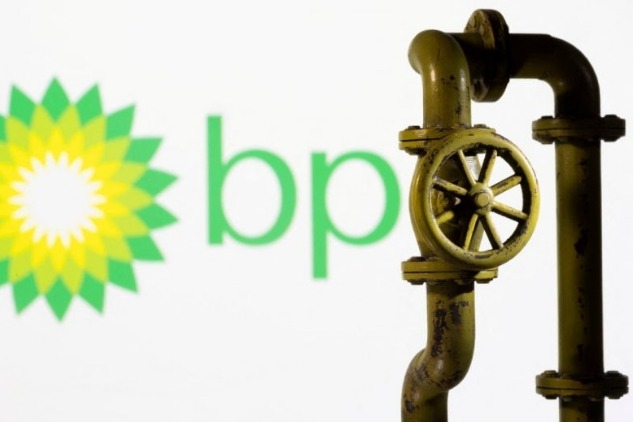Business
BP Enters South Korea’s East Sea Gas Development Race After Setback

BP plc, the British multinational oil and gas company, has submitted a proposal to develop deepwater gas reserves in South Korea’s East Sea. This move comes as the country aims to revive its ambitions of becoming a significant oil and gas producer, following the recent declaration that its flagship project, the “Great Whale” initiative, has failed to meet commercial expectations.
According to sources familiar with the matter, BP’s proposal was submitted to the state-run Korea National Oil Corporation (KNOC) to acquire rights for four offshore exploration blocks in the East Sea basin. Other foreign companies are also reportedly in the race, having submitted bids before the September 19 deadline. Notably, no domestic firms have participated in this bidding process.
The KNOC has not provided any comments regarding the interests of foreign and domestic companies in this project. The organization, in collaboration with its project adviser, S&P Global, intends to evaluate the proposals and select preferred negotiators shortly.
Setback of the Great Whale Project
The gas development initiative is particularly relevant in light of the KNOC’s recent announcement regarding the “Great Whale” structure. Once considered the most promising of seven prospects in the East Sea, this project has been deemed commercially unviable. A report from Core Laboratories NV, a US geology group, indicated that drilling samples from an initial test well conducted in February yielded no recoverable gas, despite the area’s favorable rock properties.
This disappointment has led to concerns about the future of South Korea’s deepwater exploration efforts. Yet, industry officials suggest that BP’s renewed interest may bolster confidence in the viability of other targets within the basin. An energy consultant based in Seoul remarked, “BP brings not just capital but also three decades of deepwater development experience. Their entry suggests that, even with a tighter fiscal regime, they see real geological upside.”
In June 2024, following a televised national briefing, then-President Yoon Suk Yeol announced the discovery of potentially massive oil and gas reserves offshore near Yeongil Bay in Pohang, located about 260 kilometers southeast of Seoul. This finding was based on a study by ACT-Geo, which indicated a high probability of reserves in proximity to the Donghae gas field.
BP’s Global Experience and Strategic Timing
BP, valued at approximately £68 billion (around $91.6 billion), has a proven record of bringing 11 deepwater oil and gas projects to commercial production. These projects span from Thunder Horse in the Gulf of Mexico to the Shah Deniz field in Azerbaijan and the Greater Tortue Ahmeyim liquefied natural gas facility off the coast of West Africa.
The timing of BP’s engagement with the KNOC is notable, occurring after South Korea’s snap presidential election in June, which resulted in the victory of opposition leader Lee Jae Myung. This election followed the impeachment and removal of Yoon Suk Yeol for attempting to impose martial law. While the tender for the gas blocks was launched in February, BP reportedly waited to assess the new government’s energy policies before requesting access to relevant data.
Analysts highlight the importance of political stability and institutional continuity for BP’s commitment to such long-term projects. Last year, South Korea revised its production-sharing terms, increasing the government’s maximum royalty take from 12% to 13%. While this shift narrows potential margins for operators, BP’s bid suggests that the company still views the exploration blocks as economically viable.
Sources indicate that the selection of a preferred bidder generally takes three to four weeks, followed by negotiations concerning the investment amount, equity stakes of up to 49%, and operational rights. The finalization of contracts can take several months, with profit-sharing arrangements often being a contentious aspect of negotiations.
Despite the setbacks associated with the Great Whale project, the KNOC intends to advance exploration of remaining prospects covering over 20,000 square kilometers in the Ulleung basin. An industry official emphasized, “What will determine success is not just whether hydrocarbons are present, but whether Seoul can strike a balance between resource nationalism and investor returns. BP’s willingness to enter suggests the window has not closed yet.”
-

 Lifestyle4 months ago
Lifestyle4 months agoLibraries Challenge Rising E-Book Costs Amid Growing Demand
-

 Sports3 months ago
Sports3 months agoTyreek Hill Responds to Tua Tagovailoa’s Comments on Team Dynamics
-

 Sports3 months ago
Sports3 months agoLiverpool Secures Agreement to Sign Young Striker Will Wright
-

 Lifestyle3 months ago
Lifestyle3 months agoSave Your Split Tomatoes: Expert Tips for Gardeners
-

 Lifestyle3 months ago
Lifestyle3 months agoPrincess Beatrice’s Daughter Athena Joins Siblings at London Parade
-

 World3 months ago
World3 months agoWinter Storms Lash New South Wales with Snow, Flood Risks
-

 Science4 months ago
Science4 months agoTrump Administration Moves to Repeal Key Climate Regulation
-

 Science3 months ago
Science3 months agoSan Francisco Hosts Unique Contest to Identify “Performative Males”
-

 Business4 months ago
Business4 months agoSoFi Technologies Shares Slip 2% Following Insider Stock Sale
-

 Science4 months ago
Science4 months agoNew Tool Reveals Link Between Horse Coat Condition and Parasites
-

 Sports4 months ago
Sports4 months agoElon Musk Sculpture Travels From Utah to Yosemite National Park
-

 Science4 months ago
Science4 months agoNew Study Confirms Humans Transported Stonehenge Bluestones









